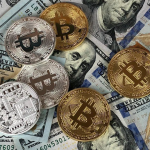#PaulEbeling #WallStreet #bullish #finantial #markets #stocks #inflation #Biden #Trump
$DIA $SPY $QQQ $RUT $VXX
Just in: The $1.75-T spending bill approved by the House last week is a “disaster waiting to happen,” so Republicans will make the American people aware of how bad it is so it can be killed in the Senate. Meanwhile, the House may have another chance if the Senate chops up the bill and sends it back, but everyone would be better served if the bill is killed in the Senate.
“Wall Street’s benchmark indexes are rising while inflation rages and more massive spending bills pass the US House and head to the Senate, why? Well, it may be on the expectation of the bill not passing or pared way down” — Paul Ebeling
The Big Q: Why is the stock market doing so well?
The Big A: My suspicion is that Wall Street professional and worldwide retail buyers believe this bill will not happen
Former Trump economist Stephen Moore said Sunday that, “They believe Republicans will be able to get rid of the worst elements of it, and maybe kill it completely.“
Mr. Moore and former Trump economic adviser Larry Kudlow are leading a coalition to kill the bill in the Senate, where moderate Senators Joe Manchin, (D-WV), and Kyrsten Sinema, (D-AZ), are sand in its gears.
Democrats need all 48 in their party, along with the 2 Senate independents and Vice President Harris’ tiebreaking vote to pass the budget reconciliation bill against 50 Republican senators.
“If we don’t kill it, we can still get rid of a lot of the worst features in the bill so that it doesn’t do so much damage,” Mr. Moore.
Steven Moore is a staunch fiscal conservative, he opposes the tax-and-spend initiatives in the bill, particularly the energy-killing goals pumped into it from the progressive’s Green New Deal push.
“I regard this as one of the worst bills in American history,” Mr. Moore said. “It is an assault on our free enterprise system, our energy independence. It is bad for people who are working hard that people are going to get all these welfare benefits.
“It’s a massive multi-trillion-dollar welfare bill. And it also has massive amounts of money for climate change research. All we’ve been doing for the past 20 years is spending money on climate change.”
My Bullish Outlook is fueled by the paring trading apps and social-media discourse, retail trading has soared since competition between brokerages hammered commissions in Y 2019.
Stocks were the focus initially, but now much of the action is seen in options, which offer an inexpensive way for traders to bet on a stock going up or down in price without having to actually purchase the shares.
Options activity in the US is on track to exceed that of the stock market for the 1st time, as the average daily notional value of traded single-stock options has risen to more than $450-B this yr, compared with about $405-B for stocks, according to Cboe Global Markets data. The notional value is the trading volume multiplied by the spot price.
Institutional investors are still big players in options contracts, which give traders the right, but not the obligation, to buy or sell an asset at a certain price.
An options contract can be used as an insurance policy in case an asset falls in value, for example. Options also are a cheap way to speculate. A contract betting on a stock to rise to a certain price within a wk, a weekly call option can cost a few dollars or less.
Options contain leverage that can magnify investment gains and losses. A typical contract gives the trader the option to buy or sell 100 shares of a stock, for a fraction of the money it would take to actually buy 100 shares of that stock.
Buying and selling of options has roughly 4X’d during the past 5 yrs. Legions of homebody investors, fanned by posts on Reddit and TikTok are chasing dollars, lots of dollars and many are cashing in daily and wkly.
This is holiday-shortened week, investors will receive new economic data and earnings results.
New inflation reports will be closely watched, and preliminary data on Black Friday sales will help serve as an early gauge of holiday shopping strength for retailers.
In observation of the Thanksgiving Day holiday, both the US stock and bond market will close and no trading will take place Thursday.
The US stock market will close early at 1 p.m. EST on Friday, and SIFMA also recommended an early bond market close at 2 p.m. EST for the day after Thanksgiving too.
But before these market holidays, Key pieces of economic data will be the Personal Consumption Expenditures (PCE) deflator for October out Wednesday from the Bureau of Economic Analysis. This will help further show how inflation has evolved in the US, and will likely show yet another elevated print on US price pressures.
Have a prosperous, happy Thanksgiving holiday week, Keep the Faith!









